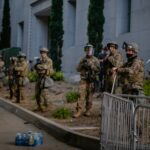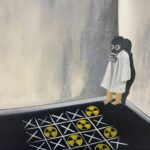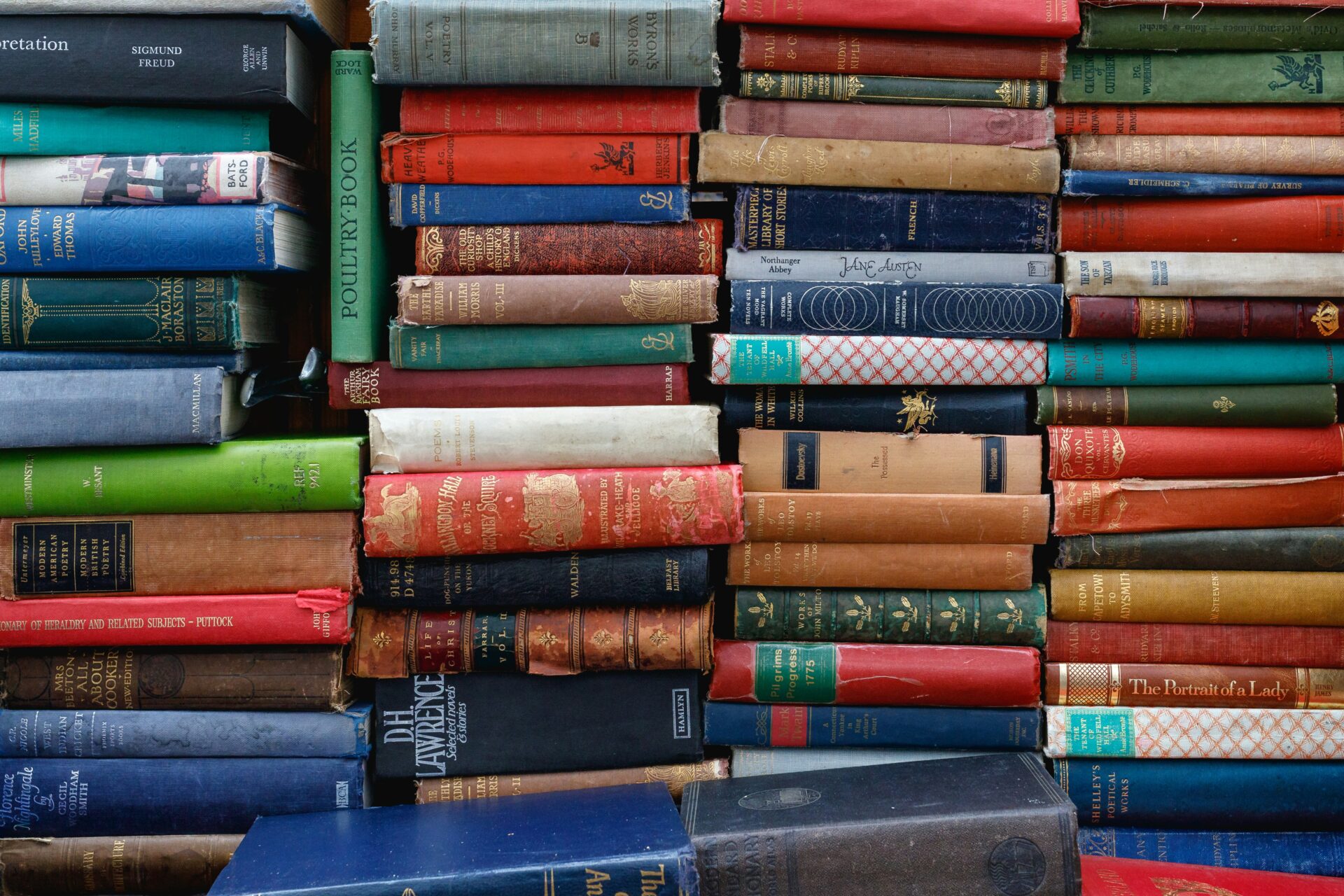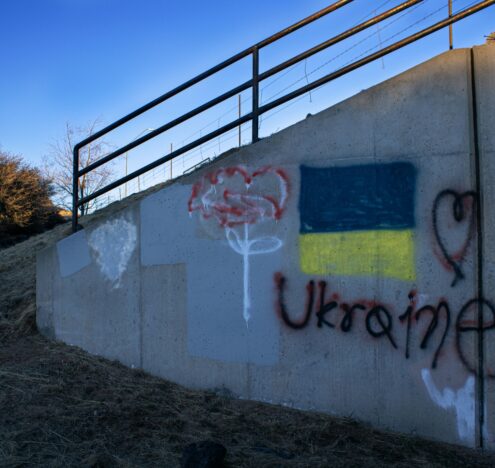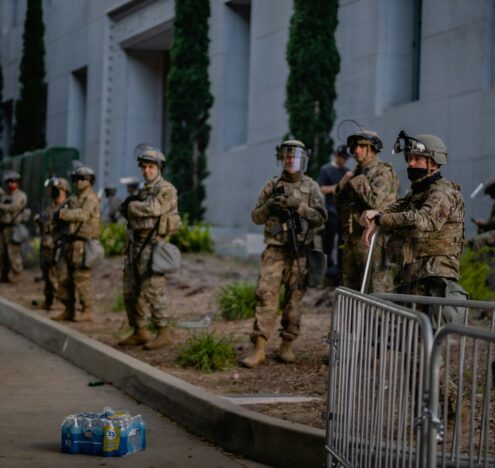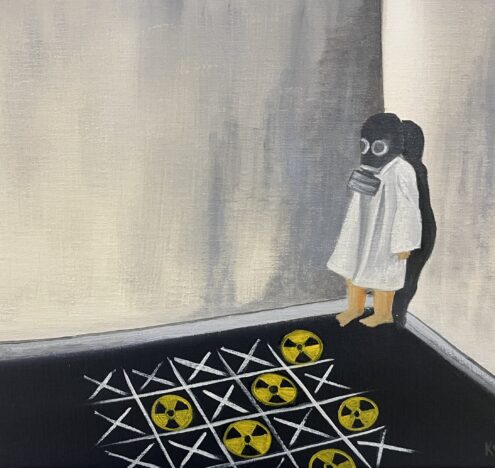When regional authorities announced a sweeping list of book bans in Kashmir, the disputed territory at the heart of a recent military conflict between India and Pakistan, veteran journalist Anuradha Bhasin soon learned his book was among the newly prohibited titles.
Published in 2022, A Dismantled State: The Untold Story of Kashmir After Article 370 examines growing repression in Kashmir Valley since India revoked the region’s special constitutional status in 2019. To the Indian government, however, the book fell into a category of titles that allegedly promote “secessionism” and “false narratives.”
“This is shocking and brazen,” Bhasin said. “The only motive we can speculate is that they do not want information and knowledge about Kashmir that is not in sync with the narrative of the present government.”
Announced in August, the government order barred 25 books at once. The titles include history texts, contemporary political writing, and works by renowned authors and critics of Indian policy, including the celebrated novelist and essayist Arundhati Roy.
Rights activists, groups that support free expression, and booksellers have since sounded the alarm. For many in Kashmir, the sudden ban is the latest chapter in a long campaign to silence critical voices and erase competing histories of the disputed Himalayan region.
Pushback or not, police soon began sweeping through Kashmir’s bookstores, pulling volumes from shelves, and seizing copies under the pretext of the ban.
The Himalayan region of Kashmir has been at the heart of a decades-long territorial dispute between India and Pakistan, both of which claim it in full but control parts of it. Since India revoked the region’s limited autonomy six years ago, New Delhi has tightened its grip by increasing its military presence, imposing restrictions on political activity, and maintaining closer oversight of civil society.
The order, issued from the office of the region’s lieutenant governor — a direct appointee of New Delhi — allows authorities to seize copies of the banned books wherever they are found, even in homes. Critics warn the move marks an escalation from suppressing journalism to policing scholarship and literature.
“First you put a ban in place, a ban with forfeiture, which means that any of these books in any form, wherever they are available, they can be forfeited,” Bhasin said. “And it creates a chilling impact in a valley where people are already navigating an excessive climate of fear and suppression.”
The ban comes even as India’s far-right, ruling Bharatiya Janata Party (BJP) touts “peace and progress” in Kashmir. “They believe they can secure the region by banning books,” Bahsin argued. “But people don’t pick up guns or start rebellions just because they read. It’s also contradictory. If the government claims terrorism has been decimated and there is peace and normalcy, why the need to crack down on books?”
The contradiction is glaring, she said: Her book is a deep dive on Kashmir’s politics since 2019, a period the government insists brought stability. “If everything is normal, how can my book be promoting terrorism? Where is the evidence?”
That lack of clarity is what puzzles Professor Sheikh Showkat, a prominent Kashmiri scholar of human rights and international law. “Everyone is surprised,” he explained. “On one side, they claim there is no conflict. On the other hand, they are insecure about books which are otherwise normal academic works.”
Attacks on free expression aren’t new in Kashmir. Across several decades, the region has endured waves of censorship alongside military crackdowns. Newspapers have been barred from publishing, journalists detained under anti-terror laws, and archives mysteriously erased.
According to Showkat, restrictions have ballooned in the region since 2010. “First, local television channels were stopped from running political commentaries,” he explained. “Then after 2014, the pressure intensified. Now even books are being barred.”
Still, rights groups say the situation has sharply deteriorated since India revoked Kashmir’s limited autonomy. Since then, dozens of reporters have been summoned by police, independent media outlets have been shut down through financial pressure, and political gatherings have been tightly curtailed.
International watchdogs, including Human Rights Watch and Reporters Without Borders, have repeatedly described the region as one of the most restricted media environments in the world. Critics argue that the extension of censorship from journalism to scholarship reflects how little space remains for dissent in Kashmir today.
The government’s action is also jarring precisely because of how the ban was invoked. A state-supported book festival, “Chinar Book Festival,” was underway when the ban was announced, a contrast that critics said exposed what they see as a political choreography — promoting reading while curating which ideas the public may access.
The timing, Showkat went on, underlines the paradox. “Pulling books off shelves elsewhere when you are advertising government-sponsored book festivals makes no sense. It simply depicts their sense of insecurity,” he said.
For Kashmiri booksellers, the sudden enforcement has been equally abrupt and intimidating. One local bookseller, who requested anonymity for fear of reprisal, said booksellers across the region removed banned titles from their shelves and packed them away a day before the news became official. “Then the police came in the morning and checked all the shops,” the bookseller recounted. “If they found any [of the banned titles], they seized them.”
It was no surprise, the bookseller explained, that the ban immediately attracted more readers to the titles on the chopping block. “All of these books were good-selling titles,” he said, “but after the ban, there was increased interest.”
Some customers even came requesting all 25 banned books, and even though the sellers cannot oblige, the titles remain widely available online through sites like Amazon and Flipkart.
For Bhasin’s part, she sees another danger at play: the disappearance of books from public spaces. “The physical presence of the book is not there,” she said. “It won’t be available in libraries or shops. That makes a difference. It has a chilling effect in a valley where people are already navigating fear and repression.”
She added, “It seems to be an extension of a larger pattern, which is prevalent across the country. But in Kashmir, it is two steps higher. Not just journalism has been silenced, but political activism has been marginalized, and civil society has disappeared.”
Delhi-based human rights activist Shabnam Hashmi, a longtime critic of the ruling BJP, says the book ban fits squarely within India’s broader turn toward censorship. “This is against freedom of expression and people’s right to free expression,” Hashmi said. “You can’t forcefully shut down voices, but unfortunately it is becoming a norm.”
Hashmi pointed to past bans and argued that the current clampdown takes the repression a step further. In 1988, like many countries, India banned Salman Rushdie’s novel The Satanic Verses, for instance. “But this goes beyond that,” she said. “What is happening now is not only bans, but rewriting history, throwing things out of schoolbooks. All of that is censorship. It hurts rationality, academic freedom, and excellence.”
“You can’t forcefully shut down voices, but unfortunately it is becoming a norm.” – Shabnam Hashmi
What troubles observers and critics is how the latest wave of censorship in Kashmir fits into a global environment of deteriorating rights. Democracies have historically used book bans sparingly, often against individual titles considered controversial. Authorities outlawing more than two dozen books in one fell swoop, as has now happened in Kashmir, marks a scope rights advocates say is rare even under authoritarian regimes. “This is not only about controlling what people read today,” said Hashmi. “It is about sending a signal to future writers and scholars that their work too can be erased.”
For Kashmiris, the bans come after years of eroding space for dissent. Apart from journalists and non-governmental organizations, even mainstream political leaders, too, have found their activities curtailed. By extending this environment of control to literature, critics argue, the government is now targeting not just speech but the very preservation of knowledge and memory.
Although Kashmir technically has an elected state government led by the regional National Conference, critics note it has little authority. The order to ban the books came from the Delhi-appointed Lieutenant Governor’s (LG) office, not the local administration.
“The state government has no powers,” Hashmi said. “Everything is controlled from the LG’s office, which means the central government, and mainly the home ministry led by Amit Shah. This is only a façade.”
Shah, one of Prime Minister Narendra Modi’s closest allies, is widely regarded as the chief architect of India’s hardline policy in Kashmir. As home minister, he oversaw the 2019 revocation of the region’s limited autonomy and has repeatedly defended the heavy militarization and surveillance measures that followed. Critics accuse him of centralizing power, undermining democratic institutions, and treating Kashmir primarily as a law-and-order problem rather than a political dispute.
That perception of powerlessness has deep roots. For decades, state governments in Jammu and Kashmir functioned under the shadow of New Delhi, but since 2019 the imbalance has been stark: elected representatives are often sidelined from decision-making, and even routine administrative matters are decided by the LG’s office. To many Kashmiris, this reinforces the belief that local governance has become ceremonial — a veneer to project normalcy internationally while the real authority rests with the central government.
In the eyes of critics, this is the heart of political helplessness in Kashmir: elected leaders lack real power, civil society is muted, and even the private realm of thought and scholarship is increasingly vulnerable to state intrusion. In such an environment, the book ban is not seen as an isolated decree, but as part of a larger system designed to limit both political agency and intellectual freedom.
As far as Bhasin sees it, the sense of tightening state control over the region also carries psychological weight for Kashmir’s shrinking intellectual community. “It adds to the fear that this will be weaponized to conduct more raids, to snoop around in people’s homes and devices,” Bhasin said. “At least temporarily, it will discourage reading.”
The book ban may not succeed in the long run — not with easy access to e-books and PDFs online — but it will have a chilling impact, leading to both fear and self-censorship. For Bhasin, the stakes are both political and personal. “It’s not just about my book,” she said. “It’s about whether Kashmir’s story can be told at all.”











